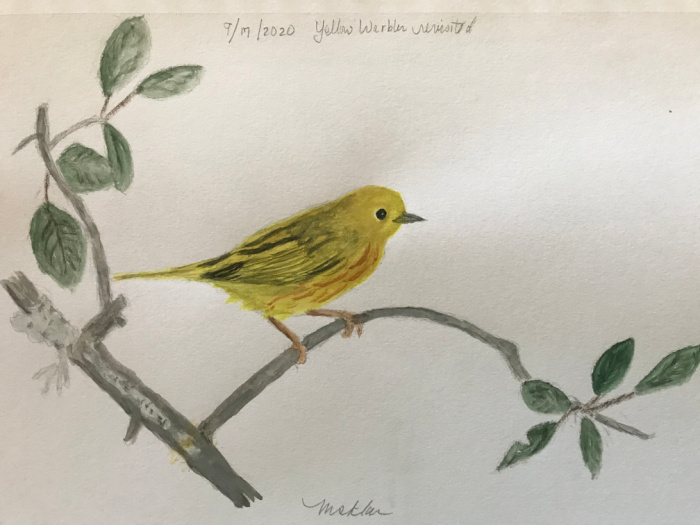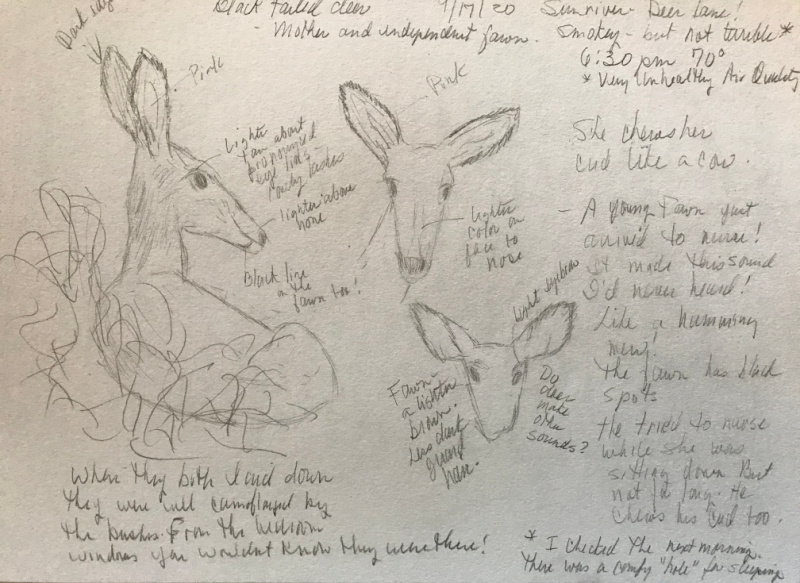The multiple stressors of 2020 have been challenging everyone’s executive functioning. So much negative news coupled with personal challenges have overwhelmed our brains. My poor brain was REALLY looking forward to my week of vacation in Central Oregon. I was going to refresh my soul hiking in the wilderness of the Cascades. And then…the fires started in Oregon.
Within days it felt like my beloved state was burning to the ground. Over 10% of our population was forced to evacuate their homes. People and animals fled the inferno. Lives were lost. Small familiar mountain communities were scorched to the ground. My daughter-in-law’s 90+year-old grandparents lost their home as did so many others.
Once the winds shifted and died down, dense smoke blanketed much of the state. Our air quality was “hazardous” – the worst in the world. Once again everyone was forced into their homes, in isolation, as the smoke seeped into our homes, eyes, throats and lungs. The dense smoke blurred the houses across the street. It was soul-sucking…
Under these conditions, my husband and I started packing our car to drive over the one mountain route still open for us to go east. We were a bit crazy to do that, but we did. We were desperate to go anywhere after staying close to home for seven months. And we were optimistic that weather conditions would be changing. I decided I’d be happier stuck in a different house! It was while packing that I learned the first lesson from my vacation.
Lesson #1: Grieve Your Losses.
At one point while packing the car, I just stopped, unable to move. A heavy “bowling ball” weight ached in my core. So I sat down and just sobbed and sobbed over my personal losses of 2020. And I cried for the losses of other innocent people and creatures. The compiled grief just had to come out of my body.
After a bit, the grief was expressed and my executive functioning brain was able to take over and let me finish packing. My lesson is this: unexpressed grief interferes with executive functioning. We have to get it out of our body to function with purposeful action.
Lesson #2: Mindset can Change Everything
After driving 3+ hours through smoke dense as fog, we arrived at our vacation rental. It too was shrouded in heavy smoke. Sadly, we left our hiking boots, day packs and hiking poles in the car, never to be used.
Shut inside, I spent the first day glaring at the smoke and checking weather reports, praying for rain, for a positive change in conditions. I mindlessly scrolled the web, disappearing down the internet rabbit hole. At the end of the day, I felt awful. Exhausted, disappointed, and ready to go home.
Fortunately, my wise prefrontal cortex, with its problem-solving abilities, pushed forward past all the negativity of my emotional brain. It told me: “You can’t change your reality, Marydee, but you can change your mindset.”
Determinedly, I reached for my Seeing My Time planner and a fresh Day Plan sheet – something I rarely do on vacation. And I made a plan for the next day. Here’s what was on my Day Sheet: I would do my exercise app when I got up. I would spend time in my online nature journaling class. I would get past my fear of watercolors, once and for all, and actually paint something! I would read and take notes in a new book on learning and motivation. I would make a tasty Tunisian chickpea soup for dinner and bake an apple cake using apples from our neighbor’s garden.
I went to bed excited about the next day, and the days after that. I had a plan and a positive mindset.
This lesson is to monitor self-talk and, when necessary, adjust your mindset consciously. Leverage the tools you have available to support your brain’s executive functioning, even on vacation.
Lesson #3: The Magic of Slowing Down to Focus

The vacation home had no closets to clean, no pantry to organize, no yard needing attention, no over-crowded refrigerator hiding “science experiments.” I couldn’t jump in the car for errands or pleasant distractions. I was stuck. I was forced to slow down. There was nothing I had to do except the “list of possibilities” on my Day Plan sheet.
For the rest of the week, I was amazed at how time spent deeply focusing on learning changed my sense of time. I didn’t feel so fractured or rushed. I was refreshed rather than exhausted at the end of the day. I had lovely nights of 8+ hours of sleep. It made me question how I clutter my mind at home with “to-do’s” that stop me from pausing to focus, appreciate and learn.
This lesson is about reframing time management. Remembering to slow down from time to time. Ask yourself what you are rushing for. Do the endless “to dos” help you or do they sometimes hinder? What can you take off of that list? This is why I speak so extensively about planning for fun. We all need time to reset our brains and refresh ourselves to support our executive functions.
Lesson #4. Be Open to Spontaneity
It was not the vacation I had planned for or longed for. However, it was a vacation that I will long remember, not only for my “lessons” but for the final gift of the trip.
After dinner on our last night, my husband discovered a black-tailed deer bedding down just behind the house. I quickly grabbed my sketchbook, marveling that I might actually have a nature experience to draw! Quietly I sat down about a dozen feet from the doe. I was amazed that she didn’t flee! Her large ears and eyes stayed focused on me for a bit until she decided I was not a threat.
I have been around deer all my life, but this was the first time that I had the opportunity to observe one so closely for such an extended period of time. As I drew, I appreciated the dimensions of her body: the colors and textures of her coat, the unique markings on her face and how those amazingly large ears swiveled to track the sounds around her, searching for danger.
Then a surprise burst into a view! An independent fawn, still with black spots, bounded around the corner as if to say, “Hey Mom! I’m home!”. I watched them, sketching until dusk obscured them in perfect camouflage.

My final lesson? Even amidst the worst of times, there is beauty and wonder if you keep your eyes open to the opportunity.
What lessons have you learned to find your center in challenging times?
Little by little, we are entering a new time. Stay well. Keep learning.


